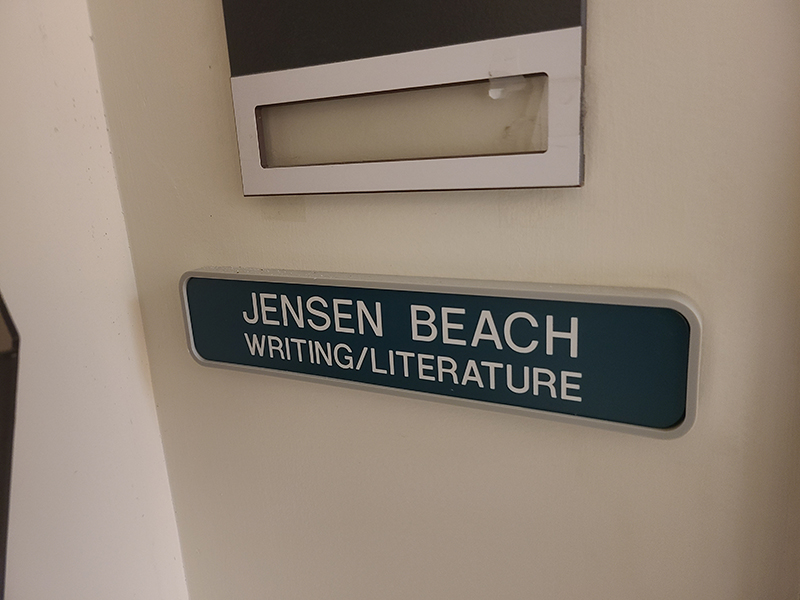As the ranks of college students with combat experience swell around the nation, JSC, along with its fellow Vermont State Colleges, is attempting to address the specific needs of student veterans. A newly formed committee tasked with addressing these needs met during the first week of classes.
The committee, as yet unnamed, has a goal to make JSC a more supportive environment for returning troops, as well as to make the college more enticing to returning veterans. The makeup of the committee reflects this two-pronged goal.
The members of the committee are Tommy O’Conner, an admissions counselor; David Bergh, dean of students; Doug Eastman, registrar; Barb Flathers, assistant to the dean of students; and Tammy Goss, assistant registrar.
Bergh said an appropriate working title for the committee is the Student Veteran Services Committee, though that might change.
According to Bergh, the committee is conscious of the service that these veterans have performed and that Vermont has continued its tradition of sending a larger percentage of its population to war than most other states.
“The Vermont State Colleges, including JSC, have realized they have a responsibility to aid these returning combat veterans by providing a viable and welcoming route for them to pursue an education upon their return from deployment,” Bergh said.
The committee is exploring options, including looking at other institutions to see what works.
According to Bergh, one of the options discussed at the first committee meeting is to develop ways to help student veterans form clubs where veterans could discuss issues and seek peer guidance, in effect helping one another with assimilation into academic life.
Another idea gleaned from successes elsewhere is to provide counseling for returning veterans. Bergh said that other schools, mostly larger than JSC, have had good results with bringing in a counselor once a week to meet with student veterans who wish to do so. Bergh said the committee is investigating if the number of veterans at JSC who would utilize this type of resource is large enough to warrant the expenditure.
The committee is also considering improving the web presence for veterans who land on JSC’s home page. “For someone who’s exploring Johnson State, if they’re a veteran, we want them to know right up front that we’re a campus that’s supportive,” said Bergh. He says that the home page’s veterans section, which is critical in attracting veterans who might be perusing the site, has improved, but that it could be designed to be more prominent and user friendly.
Additionally, the committee discussed the possibility of JSC participating in the Yellow Ribbon Program. This program is an offshoot of the so-called Post-9/11 GI Bill, and requires participating schools to enter into an agreement with the Secretary of Veterans Affairs.
Participating institutions match funds with the VA to provide tuition for returning troops who qualify. Veterans must not be on active duty, but must have either been on active duty for 36 months after Sept. 10, 2001, or have been honorably discharged from active duty for a service-connected disability after having served 30 continuous days after Sept. 10, 2001. In addition, eligible dependents and spouses of veterans can qualify. The school must also agree to admit veterans into the program on a first-come/first-served basis.
According to the Veterans’ Administration website, Vermont colleges already participating in this program include Bennington, Burlington, Castleton State, Champlain, Goddard, Lyndon State, Marlboro and Middlebury, as well as UVM.



